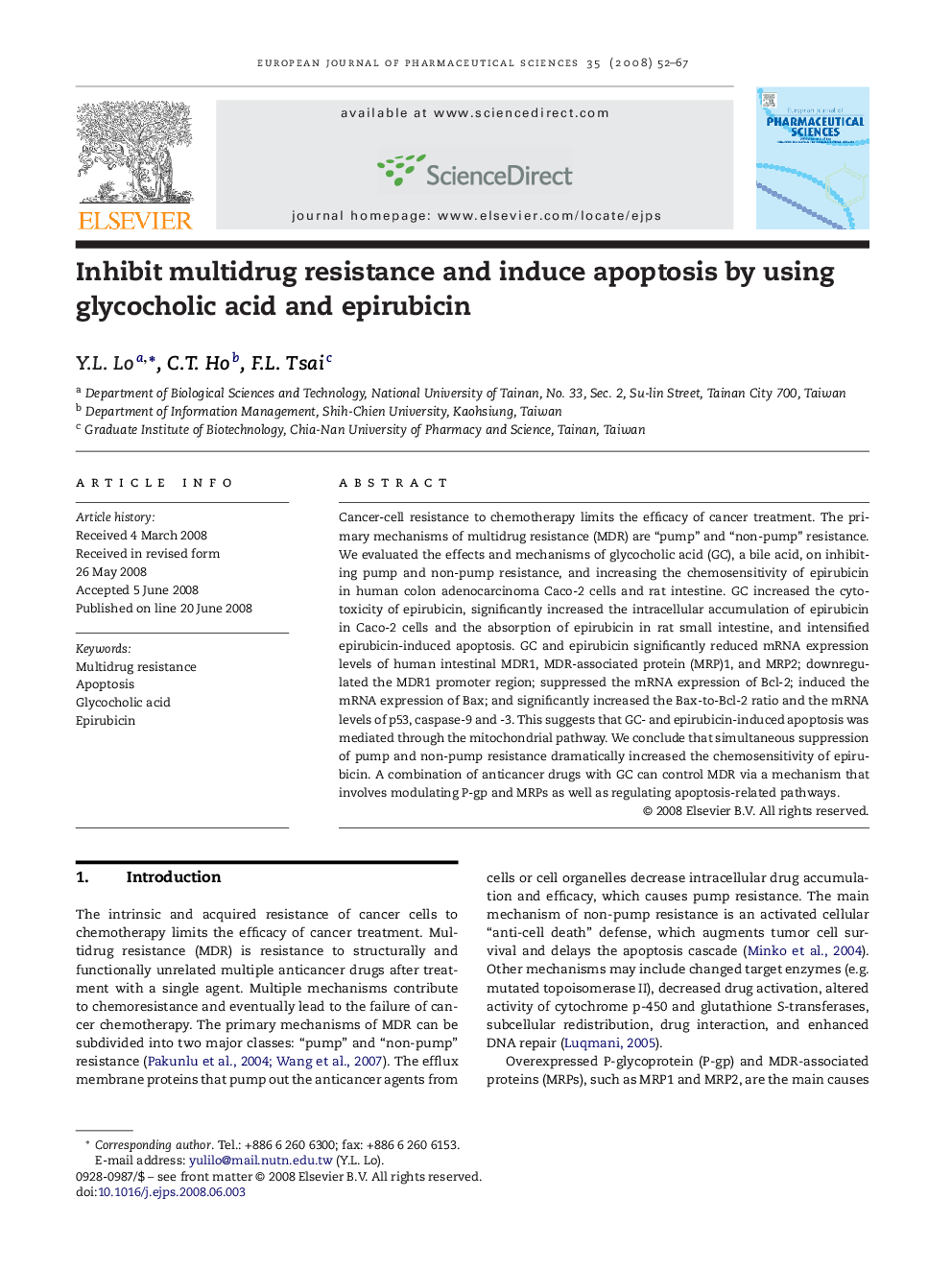| Article ID | Journal | Published Year | Pages | File Type |
|---|---|---|---|---|
| 2481754 | European Journal of Pharmaceutical Sciences | 2008 | 16 Pages |
Cancer-cell resistance to chemotherapy limits the efficacy of cancer treatment. The primary mechanisms of multidrug resistance (MDR) are “pump” and “non-pump” resistance. We evaluated the effects and mechanisms of glycocholic acid (GC), a bile acid, on inhibiting pump and non-pump resistance, and increasing the chemosensitivity of epirubicin in human colon adenocarcinoma Caco-2 cells and rat intestine. GC increased the cytotoxicity of epirubicin, significantly increased the intracellular accumulation of epirubicin in Caco-2 cells and the absorption of epirubicin in rat small intestine, and intensified epirubicin-induced apoptosis. GC and epirubicin significantly reduced mRNA expression levels of human intestinal MDR1, MDR-associated protein (MRP)1, and MRP2; downregulated the MDR1 promoter region; suppressed the mRNA expression of Bcl-2; induced the mRNA expression of Bax; and significantly increased the Bax-to-Bcl-2 ratio and the mRNA levels of p53, caspase-9 and -3. This suggests that GC- and epirubicin-induced apoptosis was mediated through the mitochondrial pathway. We conclude that simultaneous suppression of pump and non-pump resistance dramatically increased the chemosensitivity of epirubicin. A combination of anticancer drugs with GC can control MDR via a mechanism that involves modulating P-gp and MRPs as well as regulating apoptosis-related pathways.
